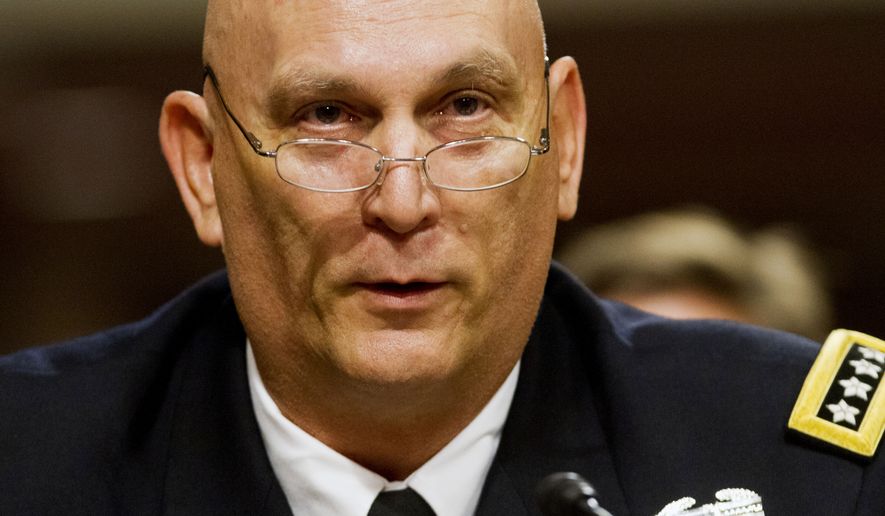Pentagon service chiefs pleaded with lawmakers Wednesday to end the budget sequesters, saying that the spending cuts will push some troops to quit and put others in more danger when they deploy.
Readiness, training and equipment are all suffering under the cuts, and it could force the branches to have to deploy troops more often than they do now to meet the U.S.’s international obligations, the chiefs told the Senate Armed Services Committee.
“Soldiers, sailors, airmen, Marines and their families should never have to face doubts about whether they will be deployed without proper training,” Gen. Joseph Dunford, commandant of the Marine Corps, said at Wednesday’s hearing. “The cost of losing that trust is incalculable.”
The sequesters, or across-the-board spending cuts, passed in 2011 as a backstop to try to force Congress to find ways to cooperate on other specific spending cuts or tax increases. But Congress failed to reach a deal, and the cuts took effect in 2012, with about half of the impact felt on defense spending and the rest on domestic spending.
Congress has blunted the edge of the cuts up until now, but they are slated to reach full level again in fiscal year 2016.
Some budget hawks have defended the cuts, saying that military readiness has not visibly been affected yet. But the majority of lawmakers and analysts said they would still prefer to end sequestration — though no one has a plan for how to do so.
SEE ALSO: Hillary Clinton undercut on Libya war by Pentagon and Congress, secret tapes reveal
Each of the service chiefs said they had spoken with the president and felt that Mr. Obama wants to see the cuts end. But when Sen. Lindsey Graham, South Carolina Republican, pressed each four-star officer to share the president’s plan to undo the cuts, each reluctantly said that he had not shared any plans with them.
Mr. Graham said lawmakers are failing just as badly at reaching a compromise.
“I don’t mean to beat on the president, I think that applies to us too. We created this mess,” he said. “Congress is in the same boat, we don’t have a plan.”
Gen. Dunford said continued sequestration cuts could force Marines to move to a one-to-one deployment ratio: seven months deployed, seven months at home, then seven months deployed again. As it stands now, Marines have about a 14 month break in the U.S. between deployments.
Gen. Mark Welsh, the Air Force chief of staff, said airmen join the service to fly planes and perform maintenance, and having to sit idle while planes are grounded due to budget cuts could hurt retention.
“All they want is to be the best in the world,” he said. “If they don’t think we will educate, train and equip them to do that and fill that role, they will walk.”
SEE ALSO: Ash Carter unlikely to close Guantanamo prison during Obama presidency, senators told
The state of foreign affairs today — from the threat of the Islamic State to a recent North Korean cyberattack — demands that the military be ready to respond quickly, lawmakers said.
“If we don’t address the problem with sequestration, we will severely limit the reigns of military options to address these national interests,” said Sen. Jack Reed, Rhode Island Democrat.
Sen. Angus King, Maine independent, said that lawmakers aiming to cut spending should look at health care instead of defense funding. Cutting the military’s budget through sequestration, he said, is like invading Brazil after Pearl Harbor.
“It’s a vigorous reaction, but the wrong target,” he said.
• Jacqueline Klimas can be reached at jklimas@washingtontimes.com.




Please read our comment policy before commenting.